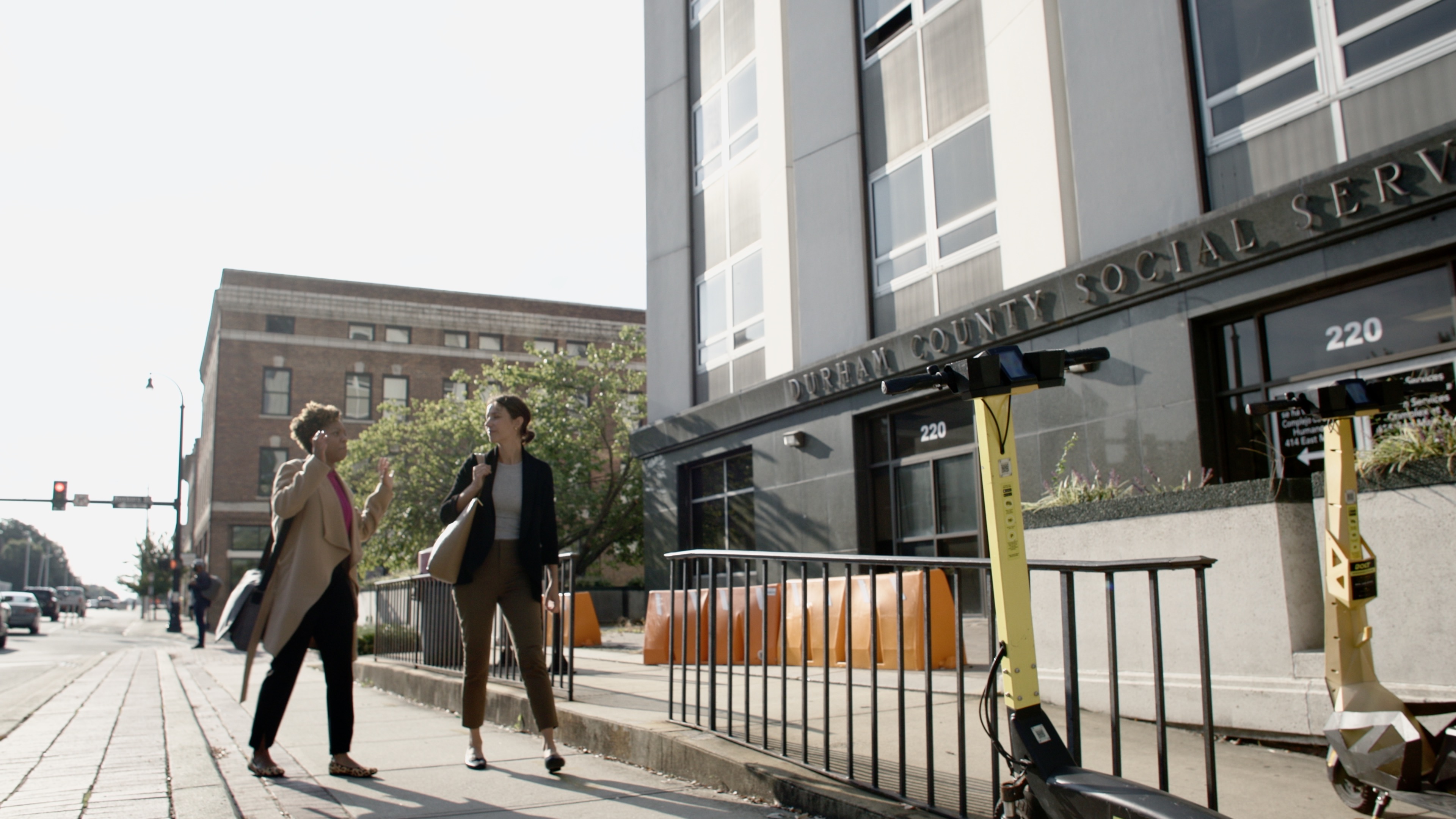Creating Resilient Housing in Eastern North Carolina
Operating as a part of the School of Government, the Development Finance Initiative (DFI) approaches its work with the same core values as the School. This includes responsiveness, which involves listening to and actively meeting the needs of North Carolina local officials and communities. For the DFI team, that has also meant cultivating expertise in new areas of real estate development in order to meet the needs of local governments.
DFI Assistant Director Sarah Odio’s expertise is indicative of this dedication to responsive support. While the initiative’s early work largely focused on downtown redevelopment projects, inquiries over time follow macroeconomic trends. In the last five years, DFI has seen a steady increase in the number of requests for assistance in developing affordable housing projects to meet community needs.
“Housing for low and moderate-income households affects a good chunk of the workforce, including local government employees,” Odio said. “Housing is critical infrastructure for a healthy and robust community. At the same time, housing solutions are real estate development based. It can be costly and confusing. Local governments are looking for help, and we respond to those needs.”
In 2017, DFI partnered with North Carolina Emergency Management (NCEM) to leverage disaster recovery dollars from recent hurricanes to spur affordable housing projects in eastern North Carolina. The Public-Private Partnerships (P3) for Housing program is now aligned with the North Carolina Office for Resiliency and Recovery (NCORR) and works with qualified local governments to identify opportunities and attract private investment in their communities.
The NCORR and DFI partnership is a smart collaboration with myriad benefits to participating communities. Resiliency and affordable housing are tightly linked: safe, accessible housing outside of historic flood zones and other vulnerable areas is essential to ensuring the future prosperity and well-being of North Carolinians. One aspect of fostering resiliency is providing community members with long-term and affordable options for living.
“Historically, the households most vulnerable to natural disasters are low-income households,” Odio said. “Resiliency gives people options in communities. It is not only about having a house, but about maintaining a network in order to work, have a family, and participate in a community.”
Odio’s work has been instrumental in successful ongoing projects across eastern North Carolina. Getting these projects off the ground in communities means the DFI team must first engage in education with the public, local government staff, and councils.
“There are a lot of misconceptions around affordable housing,” Odio said. “The projects that are built today are done through a public/private approach. This housing is great quality and is overseen by a state agency that incentivizes keeping it in good repair. When we work with communities, our efforts are responsive to their needs and policy-neutral. Our goal is to give our local government partners all the information they need to understand the trade-offs of different decisions and make informed choices.”
In the communities of Lumberton and Rocky Mount, this education and the hard work of DFI and local governments is paying off. Both municipalities are on track to create new affordable housing projects that illustrate the unique goals different communities seek to accomplish.
Work with the City of Lumberton began in 2019 and has been formulated to meet the needs of low-income senior households in the community. After breaking ground in 2021, the development will open 66 rental units in summer 2022. These units are fully managed and reserved for 30 years for senior households earning 50 to 60 percent of the Area Median Income (AMI).
Rocky Mount’s development is located on a 1.3-acre site near the heart of downtown and has many of the flavors of a downtown redevelopment project. The project recently closed on financing and will provide 50 apartments to households at 60 percent of the AMI. It includes walkable access to amenities including a grocery store, pharmacy, shopping, and public transit.
Lumberton and Rocky Mount join an array of North Carolina municipalities and counties working with DFI on affordable housing efforts. They include Dare County, Durham County, Hyde County, and Southern Pines. DFI is also working with NCORR to create a strategy to deploy disaster recovery dollars for the development and preservation of rental housing across 23 eastern North Carolina counties.
Taken together, these projects demonstrate the diversity of DFI’s work: what local governments want to achieve with their properties differs, so every community project is unique. Some communities begin a project with affording housing in mind, and others have ventured into it while working on a separate effort. Whether a community wants to create senior housing options tucked into a single-family neighborhood, an apartment complex in a vibrant downtown, or something entirely different, DFI helps them bring their goals to life.
“There is no one-size-fits-all solution,” Odio said. “In order to be effective, we adapt each project to a community’s identity and how it wants to move forward. There’s so much creativity involved because there can’t be a single approach to every project.”
Published August 8, 2022



